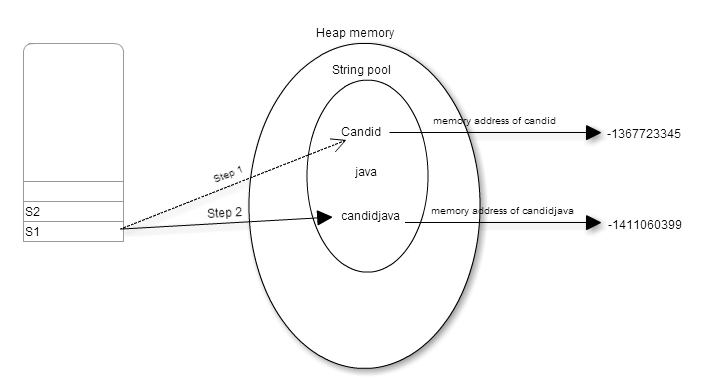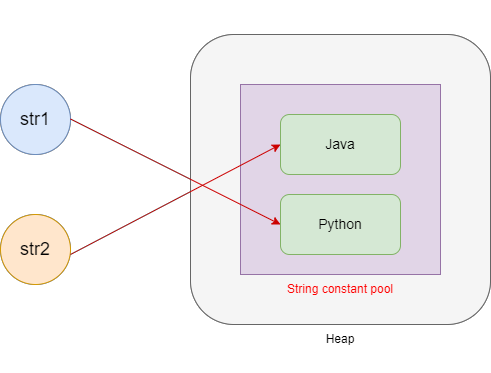Why Are Strings Immutable in Java? Trick Reasons and Advantages Clarified
Why Are Strings Immutable in Java? Trick Reasons and Advantages Clarified
Blog Article
What Is Unalterable Strings and How It Functions
In the world of programming, comprehending the idea of immutable strings is extremely important for developing robust and safe and secure applications. Unalterable strings refer to strings that can not be changed after they are created, making sure information stability and predictability within the code.
The Essentials of Unalterable Strings
Immutable strings, as an essential concept in programming, are character series that can not be changed when they are created. This means that when a string is designated a worth, that worth can not be modified. In languages like Python and Java, strings are immutable objects, bring about numerous effects in regards to memory management and information stability.
One of the essential benefits of unalterable strings is that they provide a complacency in information manipulation. Since the web content of an immutable string can not be customized, it guarantees that the original information stays undamaged, minimizing the risk of unintentional changes throughout program execution (Why are strings immutable in Java?). This residential property likewise simplifies debugging procedures, as programmers can rely on that when a string is defined, its worth will certainly not be unintentionally changed
When a brand-new string is developed based on an existing one, rather than modifying the original string, the brand-new value is kept independently. In general, recognizing the essentials of immutable strings is important for mastering programming principles and optimizing code effectiveness.
Benefits of Unalterable Strings
Building upon the safety and security and efficiency benefits of unalterable strings, their advantages reach enhancing code reliability and streamlining simultaneous programs tasks. By being immutable, strings can not be changed after creation, which removes the danger of unexpected changes in the data they save. This integral immutability ensures that when a string is produced, its value remains consistent throughout the program's execution, lowering the chances of pests triggered by unforeseen modifications.
In addition, immutable strings contribute to code dependability by making it much easier to reason concerning the state of a program. Given that strings can not be changed, programmers can trust that a string will certainly constantly hold the very same value, streamlining debugging and upkeep initiatives. This predictability causes much more stable and trustworthy codebases.

Implementation in Programming Languages
Within numerous link programs languages, the incorporation of unalterable strings is a basic aspect that impacts exactly how information is dealt with and controlled within code structures. The application of unalterable strings varies throughout different programs languages, with each language offering its very own devices to sustain this idea.

On the other hand, languages like C and C++ do not have integrated assistance for immutable strings. Designers in these languages have to by hand implement immutability by enforcing regulations within their code to protect against direct modifications to string objects.
Finest Practices for Functioning With Immutable Strings
When handling immutable strings in programming languages like Java and Python, sticking to finest practices ensures safe and secure and efficient information control. One of the essential finest practices is to use StringBuilder or StringBuffer instead of directly adjusting strings, particularly when taking care of comprehensive concatenation procedures. These classes give mutable choices for string control, aiding to avoid unneeded memory allowances and enhancing efficiency.
One more ideal method is to utilize string interpolation or format works given by the language as opposed to hands-on concatenation. This not only improves readability yet additionally help in preventing usual pitfalls such as unintentional string alterations. Furthermore, when collaborating with delicate data such as passwords or API secrets, it is crucial to stay clear of keeping them as simple text in immutable strings. Utilizing safe storage space mechanisms like char selections or specialized libraries for dealing with sensitive details helps reduce safety and security threats connected with immutable strings.
Real-world Applications and Examples
Checking out useful implementations of immutable strings in various sectors discloses their considerable influence on information stability and system reliability. In the medical care field, unalterable strings play a vital function in making certain the safety and privacy of individual data. By stopping unapproved modifications to delicate information such as medical records and prescriptions, unalterable strings assist preserve compliance with strict personal privacy regulations like HIPAA.
Banks additionally take advantage of the unalterable nature of strings to boost the safety of customer information and transaction documents. Immutable strings help protect against scams and unauthorized modifications to economic info, offering a durable defense against cyber hazards and making sure the count visit the website on and self-confidence of customers.

Final Thought
Ideal practices for functioning with immutable strings consist of staying clear of straight modifications and making use of approaches that return brand-new string objects. Real-world applications of immutable strings include information security, caching, and string control tasks.
Unalterable strings refer to strings that can not be modified after they are developed, ensuring information honesty and predictability within the code. When a new string is developed based on an existing one, rather than modifying the original string, the new value is kept separately.In languages like Java and Python, strings are unalterable by default, implying that when a string things is developed, its value can not be transformed - Why are strings immutable in Java?. Finest methods for working with immutable strings include preventing direct modifications and utilizing methods that return brand-new string objects. Real-world applications of unalterable strings include data security, caching, and string control tasks
Report this page